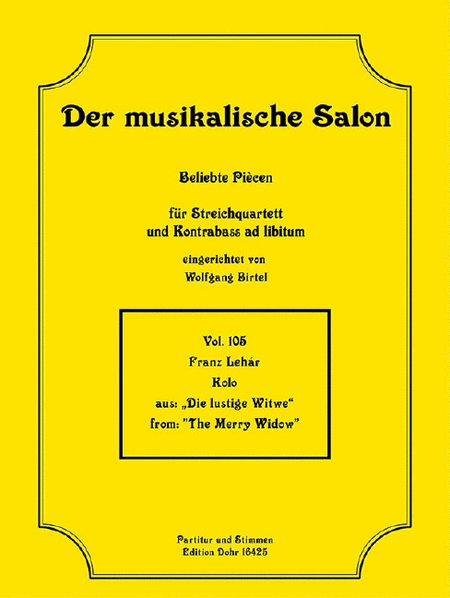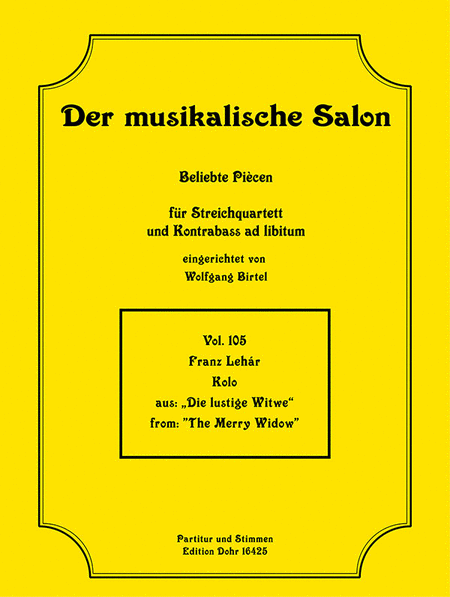usa zone
CELLO - VIOLONCELLO Free sheet music of Franz Lehar - Do
Franz Lehar (1870 - 1948)
 Hongrie
Hongrie
Franz Lehár (April 30, 1870 ? October 24, 1948), known in Hungarian as Lehár Ferenc, was a Hungarian composer, mainly known for his operettas.
Lehár was born in the northern part of Komárom, Kingdom of Hungary, Austria?Hungary (now Komárno in S ... (Read all)
 Hongrie
HongrieFranz Lehár (April 30, 1870 ? October 24, 1948), known in Hungarian as Lehár Ferenc, was a Hungarian composer, mainly known for his operettas.
Lehár was born in the northern part of Komárom, Kingdom of Hungary, Austria?Hungary (now Komárno in S ... (Read all)
CELLO - VIOLONCELLO Free sheet music of Franz Lehar - Do
1 sheets found sorted by:
Search on #CELLO - VIOLONCELLO
| ||||||||||
© 2000 - 2024
Home - New releases - Composers
Legal notice - Full version









 SHEET MUSIC
SHEET MUSIC